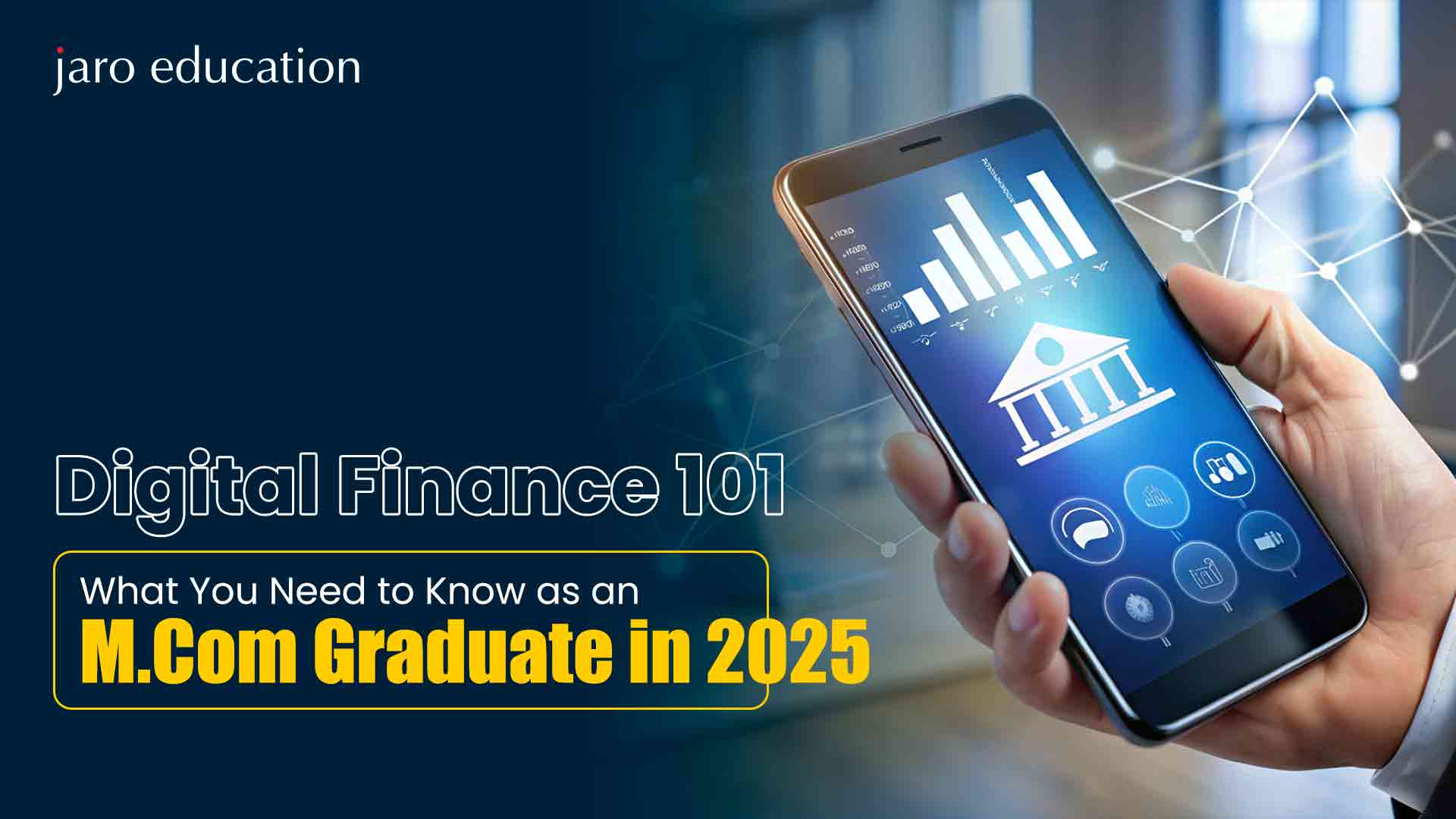
Digital Finance 101: What You Need to Know as an M.Com Graduate in 2025
Table Of Content
What is Digital Finance, Anyway?
The Transformative Impact of Digital Finance
Must-Have Skills for Digital Finance
Exploring Career Opportunities in Digital Finance
Why Digital Finance Certification is a Game Changer
Peeking into the Future
How to Kickstart Your Journey
Wrapping Up: Embrace the Revolution
Frequently Asked Questions
What is Digital Finance, Anyway?
The Transformative Impact of Digital Finance
Must-Have Skills for Digital Finance
Exploring Career Opportunities in Digital Finance
Why Digital Finance Certification is a Game Changer
Peeking into the Future
How to Kickstart Your Journey
So, are you ready to dive into the world of digital finance? Here are some steps to get started:
- Enroll in Relevant Courses: Choose certifications that align with your career goals and interests.
- Network Actively: Attend industry conferences, webinars, and meetups to connect with professionals.
- Stay Updated: Follow industry trends and news to remain informed about the latest developments in digital finance
Wrapping Up: Embrace the Revolution
Frequently Asked Questions
- Digital finance and FinTech are often used interchangeably but refer to different concepts. Digital finance is a broader term that encompasses all financial activities conducted via digital means, such as online banking, mobile payments, and digital investments. It represents the integration of technology into all aspects of financial services.
- FinTech, on the other hand, specifically focuses on the technologies and innovations that aim to enhance and automate the delivery of financial services. FinTech usually involves startups and technology companies that challenge traditional financial institutions by offering innovative solutions.
A digital finance tool refers to any software or application designed to help individuals or businesses manage their financial activities in a digital environment. These tools streamline various financial processes, improving efficiency and accessibility. Common examples include:
- Mobile Banking Apps: These apps allow users to perform banking transactions via smartphones, including checking balances and transferring funds.
- Budgeting Tools: Applications like Mint and YNAB (You Need A Budget) assist users in tracking their spending and managing their budgets effectively.
- Investment Platforms: Online services like Robinhood or E*TRADE facilitate buying and selling securities without the need for traditional brokerages.
These tools enhance financial literacy and simplify the management of finances for users.
Banking traditionally refers to the services provided by banks, such as accepting deposits, offering loans, and managing financial transactions. In contrast, digital finance integrates technology into banking practices, transforming how banking services are delivered. This includes:
- Online Banking: Banking services conducted over the internet, allowing customers to manage their accounts remotely.
- Mobile Banking: Access to banking services through mobile devices.
- Peer-to-Peer (P2P) Lending: Platforms that connect borrowers directly with lenders, bypassing traditional banks.
The integration of digital finance into banking enhances accessibility, improves customer service, and increases operational efficiency.
While digital finance offers significant benefits, it also presents several risks, including:
- Cybersecurity Threats: Digital platforms are vulnerable to hacking, fraud, and data breaches. In 2021, the estimated global cost of cybercrime reached around $6 trillion.
- Privacy Concerns: The collection and handling of personal financial data by platforms raise significant privacy issues. A survey indicated that 92% of consumers are concerned about their financial data being compromised.
- Regulatory Challenges: The rapid evolution can lead to regulatory compliance issues, particularly for emerging FinTech startups that may lack the resources to navigate complex regulations.
- Market Volatility: Tools related to investments, such as cryptocurrencies, can be highly volatile, posing risks to uninformed investors.
For more insights, you can refer to articles from trusted sources such as Harvard Business Review and Deloitte.



